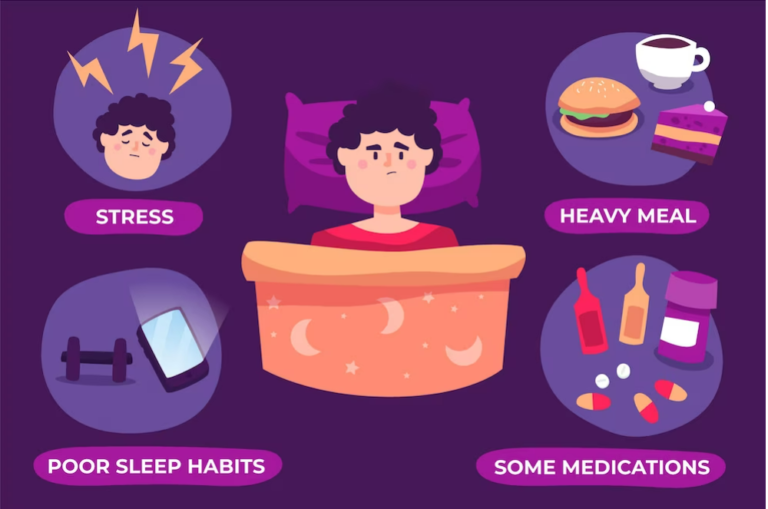
The Importance of 6 incredible Tips to Sleep Better at Night Sleep: How to Improve Your Sleep Quality
Making dietary and lifestyle adjustments can help you sleep better. There are certain supplementary and all-natural treatments that can be helpful.
As important as regular exercise and a balanced diet are, getting a good night’s sleep is also imperative.
According to research, getting too little sleep can immediately affect your hormones, ability to exercise, and brain function.
Both the quantity and quality of sleep have declined during the last few decades. In actuality, a lot of individuals routinely get less sleep than they require.
Increased Daytime Exposure to Bright Light
Your body’s circadian rhythm, which affects your brain, body, and hormones, functions as a kind of internal clock.
Your circadian rhythm can be kept healthy with the use of daylight or strong light during the day. This not only increases energy during the day but also enhances the consistency and length of your sleep at night.
Exposure to bright light during the day has been demonstrated to improve the quality and length of sleep for people who suffer from insomnia. Even the time it takes to fall asleep was cut in half by 83%.
Similar to this, a research of older persons discovered that sleeping longer when exposed to strong light for 2 hours throughout the day 80% more effective sleep after 2 hours.
Even while the majority of studies has focused on people with serious sleep issues, there’s a potential that regular light exposure could still be beneficial for you even if you get an average night’s sleep.
Make an effort to spend time in the sunlight during the day, or if necessary, invest in equipment or bulbs that produce artificially strong light.
Limit your evening exposure to blue light.
It is advantageous to remain in the presence of light during the day, but this is not true of exposure to light at night.
It does this by interfering with your circadian cycle and tricking your brain into believing it is still sunlight. This lessens the hormone melatonin production, which promotes relaxation and deep sleep.
In this situation, blue light, which is produced in high quantities by electronics like computers and smartphones, is particularly damaging.
You can use a number of well-liked techniques to lessen the dangers of blue light exposure at night. These consist of:
Put on glasses that block blue light. Put on glasses that block blue light.
Install Blue Light Blocking Apps on Your Devices:
To limit blue light emission, download programmes like “f.lux” for your laptop or computer. (6 Tips to Sleep Better at Night)
Download Blue Light Blocking Apps for Smartphones: Download blue light blocking apps for your smartphone. Both iPhone and Android models can use these.
Limit your evening screen and TV time by turning them off at least two hours before going to bed.
You can successfully lessen the potential negative effects of blue light exposure at night and get better sleep by using these practices
Stay away from caffeine in the evening
Around 90% of Americans ingest caffeine, which has many advantages.
Caffeine can improve focus, vigour, and athletic performance.
Caffeine can, however, stimulate your nervous system and prevent your body from going to sleep at night if you eat it later in the day.
Caffeine use six hours before bedtime significantly reduced the quality of sleep in one research.
Your bloodstream can remain exposed to caffeine for 6 to 8 hours. As a result, it is advised against drinking more coffee after 3 or 4 PM. If you have trouble falling asleep or are sensitive to caffeine, you should pay particular attention to this advice.
Choose decaffeinated coffee if you still feel the need for a cup in the afternoon or evening.
Limit Uneven or Prolonged Naps Throughout the Day
While quick power naps have their advantages, prolonged or irregular daytime naps might have a negative impact on your sleep.
In fact, a study indicated that people who napped during the day began to feel more sleepy during the day.
According to a different study, taking a 30-minute or shorter nap throughout the day will improve brain function, while taking longer naps may be bad for your health and sleep.
However, some studies suggest that people who routinely take quick naps during the day don’t typically report reduced sleep quality or disturbed evening sleep.
If you have a routine of taking daily naps and yet manage to if you have a good night’s sleep, you might not need to be concerned. From person to person, napping has different effects.
Be consistent with your sleep and wake times.
The circadian rhythm in your body runs on a predetermined loop that corresponds to dawn and sunset.
The quality of your sleep can be significantly improved over time by matching your sleep and wake timings with your body’s natural cycle.
According to a study, people who had irregular sleep schedules and went to bed late during the week reported having poor sleep quality.
If you have trouble falling asleep, try setting up a schedule where you get up and go to bed at the same time every day. You might not even need an alarm after a few weeks.
Avoid Eating Late at Night
The quality of your sleep and the normal release of hormones like GH (growth hormone) and melatonin can both be negatively impacted by eating late at night.
As was already discussed, your late-night snack’s calibre and kind might also be important.
In a research, eating a dinner high in carbohydrates four hours before bedtime made participants fall asleep more quickly.

